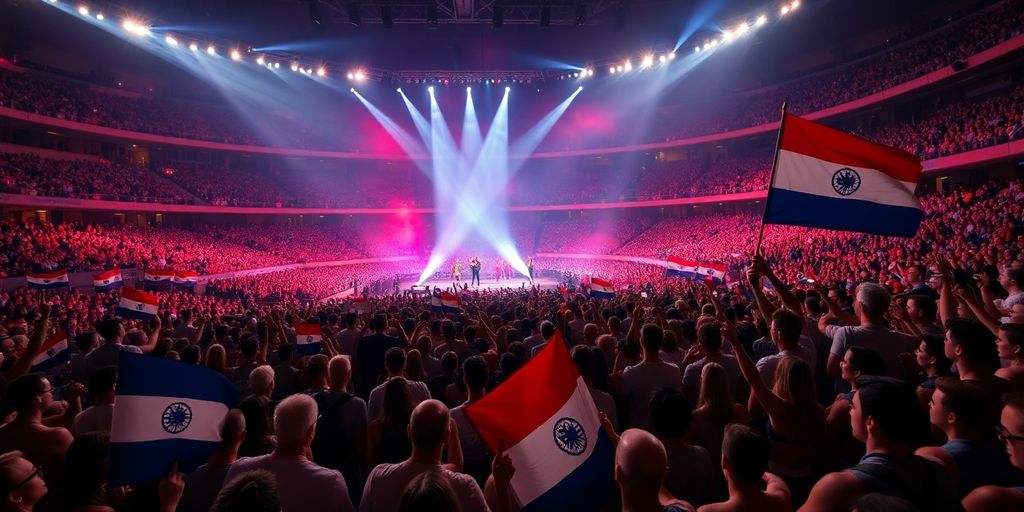ZAGREB, Croatia — The recent sell-out concert of pro-Nazi singer Marko Perkovic, known as Thompson, at the Zagreb Arena has sparked outrage and concern among many, particularly within the Jewish community. This event highlights a troubling trend in Croatia, where the collaborationist past of the Ustaše regime is increasingly being normalized, raising alarms about the resurgence of nationalist sentiments.
Key Takeaways
- Marko Perkovic’s concert sold over 500,000 tickets, indicating a significant following.
- The Ustaše regime, a fascist government during World War II, is gaining sympathetic rhetoric among some nationalists.
- The Jewish community in Croatia is advocating for stronger laws against Nazi symbolism, but faces political resistance.
Historical Context
The Ustaše regime, which ruled Croatia during World War II, was notorious for its brutal persecution of Jews, Serbs, and Roma. Concentration camps like Jasenovac were sites of horrific atrocities, with estimates suggesting that around 80% of Croatian Jews were killed during this period. As Croatia approaches the 80th anniversary of the end of World War II, the memory of this dark chapter is becoming increasingly contentious.
Rising Nationalism
Despite Croatia’s current government being an ally of Israel, there is a growing acceptance of nationalist symbols associated with the Ustaše. The slogan "Za Dom Spremni" (For the Homeland Ready), reminiscent of Nazi salutes, is being used more openly, reflecting a shift in public sentiment.
Zoran Ferber, secretary-general of the Jewish Community of Zagreb, expressed frustration over the lack of legislative support to combat the glorification of the Ustaše. He noted that proposals to strengthen laws against Nazi symbolism have not gained traction, leaving the community feeling vulnerable.
The Concert’s Impact
Thompson’s concert is not just a musical event; it symbolizes a broader acceptance of extremist views in Croatian society. Tena Banjeglav, a program coordinator at Documenta, a nonprofit focused on dealing with the past, pointed out that many Croatians associate these symbols with the 1990s war against Serbia rather than their historical context.
The concert’s popularity raises questions about the normalization of extremist ideologies and the implications for Croatia’s social fabric. As the country grapples with its past, the resurgence of such sentiments poses a challenge to the values of tolerance and remembrance.
Community Response
The Jewish community in Croatia, now numbering around 1,300, is primarily composed of elderly survivors and their descendants. Many community leaders, like Saša Cvetković, emphasize the need for memorials specifically dedicated to the victims of the Ustaše, arguing that existing memorials often obscure the regime’s culpability.
Recent acts of vandalism and anti-Semitic graffiti in Zagreb have further highlighted the precarious situation for the Jewish community. The rise in such incidents coincides with the ongoing conflict in Gaza, which has exacerbated tensions and led to a breakdown in relationships with some anti-fascist groups.
Conclusion
The sell-out concert of a pro-Nazi singer in Zagreb is a stark reminder of the challenges Croatia faces in confronting its historical legacy. As nationalist sentiments gain ground, the Jewish community and other advocates for historical truth are left to navigate a complex landscape of memory, identity, and the fight against extremism. The need for open dialogue and education about the past has never been more critical as Croatia seeks to reconcile its history with its future.
Sources
- Pro-Nazi singer sells out Zagreb arena as Croatia’s collaborationist past sheds its taboo, Jewish Telegraphic Agency.






